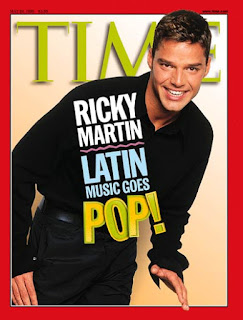The first time I saw Slayer was on the Diabolus in Musica tour. It was at Roseland Ballroom in NYC and Fear Factory and Kilgore Smudge opened. I was 17 and it was cool because I was the first of all my friends to see Slayer play live.
The show was the most chaotic, dangerous thing I had ever been a part of in my life up to that point. I couldn't hear for a few days afterwards. Someone got seriously injured and Tom Araya stopped the show out of concern for their safety, probably before playing Dead Skin Mask or Killing Fields. Burton Bell from Fear Factory threw me the microphone to sing part of Scapegoat.
At some point Slayer played Gemini, which was the sole original song from an album of punk covers (Undisputed Attitude). My first exposure to the album was a 15 second Quicktime movie posted by MTV that I downloaded from America Online. That short clip came up the size of a postage stamp and probably took me an afternoon to download.
Kerry King is the worst and he was in rare form in his interviews for the album and in the linear notes, doing what a lot of people who are into extreme music do when confronted with someone else's musical career and hard work: criticizing whole oeuvres by line-item and swerving someone else's personal taste into anathemas. He tore apart the bands he was paying homage to.
But maybe it was Jeff Hanneman's homage. It's clear from the linear notes and interviews from the time that he was the dude who was really into punk and hardcore. Jeff Hanneman was the Cliff Burton to Kerry King's James Hetfield, the superior taste that transcended the morass of classic rock. He really was brilliant, excursions into fascist aestheticism and memorabilia aside. I also never liked the lyrics, which is fine because I almost always ignore a band's lyrics. It's usually for the best.
Gemini was great because it had the same mid-tempo style that they used on Divine Intervention (the song) and Seasons in the Abyss (the album). It has aged better than a lot of their stuff and, as far as maturity in a metal band goes, I still think it sounds more like a step up than a step down. Live it was everything I could hope for because I actually DID spend money on Undisputed Attitude and had to skip forward on an awful lot of songs for a 33 minute album. Gemini is at the end and is a complete about-face to the rest of the album. The name of the song and the song itself sound like the "Gemini Man" level of Mega Man where everything looks like translucent Jolly Ranchers, which is to say a sort-of frosty futurism.
The album sounds desperate in both senses of the word (grasping at straws and nothing left to lose). Some of it is just too much, like the cover of the Stooges' "I Wanna Be Your Dog" (renamed "I'm Gonna Be Your God") and "Can't Stand You". But some of it sounds truly angry which is a feat considering that they were in their mid-30's and, in Tom Araya's case, married with a child on the way. It's strange to think that the album was recorded while his wife was entering the third trimester of her pregnancy. His daughter was born two weeks before the album was released and undoubtedly he could no longer be the same man who recorded angry music made by young men in their teens and early-twenties.
In a way, the album is a consummate resolution to the dilemma most men face when leaving their youth: what did it mean to be old and what does it mean now that I'm there? Will my relationships be padded with conversations about sales goals and kitchen renovations? Will there be dyed hair and bad plugs? What does responsibility look like and can value systems shift without losing your identity? What does it mean to be a person of integrity? What does it mean when the kids in the audience are closer to my children's age than I am to them?
Undisputed Attitude is usually remembered by most fans as one of Slayer's worst album...without any realization that the critics themselves might trip over the same threshold that they ridiculed the band for having just crossed.
















































